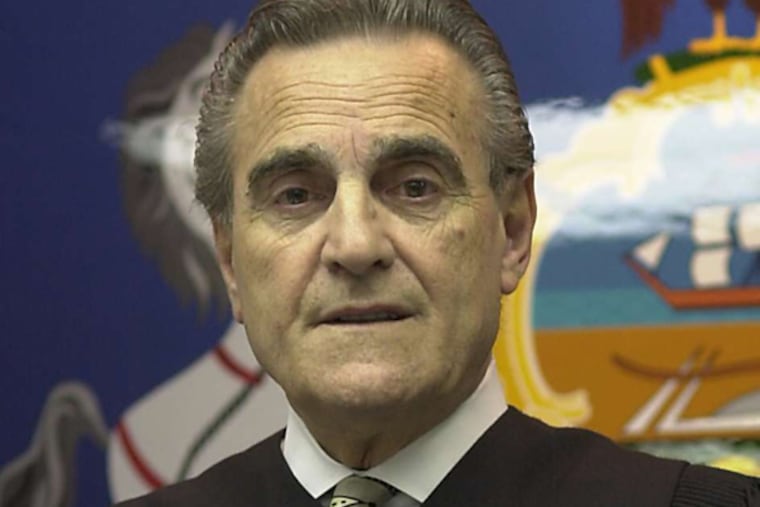Inquirer Editorial: Justice for judges?
A federal jury Wednesday decided the case wasn't strong enough to convict five Philadelphia Traffic Court judges of conspiracy and fraud in a ticket-fixing scheme. But finding four of the judges guilty of lying to investigators may yet provide some level of punishment that sends the right message.

A federal jury Wednesday decided the case wasn't strong enough to convict five Philadelphia Traffic Court judges of conspiracy and fraud in a ticket-fixing scheme. But finding four of the judges guilty of lying to investigators may yet provide some level of punishment that sends the right message.
Prosecutor Anthony Wzorek - noting the pledge etched on the marble facade of the U.S. Supreme Court: "Equal Justice Under the Law" - said in closing arguments that "Who Do You Know?" would have been a good slogan for the city's Traffic Court. That question set the tone for routinely setting aside tickets for "special consideration" at the request of politicians and other connected individuals.
The court was so out of control that one judge, Fortunato Perri Sr., was said to have accepted gifts of seafood, car care, and pornographic DVDs, which he wanted wrapped up "real nice," from South Philadelphia businessman Henry "Eddie" Alfano. Both Perri and Alfano pleaded guilty earlier in the case.
Prosecutors didn't show any money being exchanged to get a ticket fixed. Instead, all it typically took was a phone call from the office of a City Council member, or a ward leader, or a friend or relative to get a judge to handle a case differently.
With the Democratic Party in full control of Philadelphia politics, having some affiliation with the party might soften a judge's heart. But anyone without friends in the party could expect to pay hefty fines and have points put on driver's licenses.
Consequently, a city that has had a hard time finding enough money to support its public schools was denied ticket revenue. Even worse, dangerous drivers were allowed to stay on the road.
Defense attorneys argued that the traffic judges were merely exercising judicial "discretion" when they chose not to punish some traffic violators. It's fine for judges to have discretion in considering cases, but judicial discretion should concern interpretations of the law or extenuating circumstances related to a defendant.
Testimony made it clear that any discretion exercised in Traffic Court only served to perpetuate a dual system of justice with one set of rules for connected individuals and another set for everyone else. That's wrong by any standard of American jurisprudence, where equality is supposed to be the rule.
For that reason, the jury's verdict is disappointing. But perhaps justice was served earlier when the legislature and Gov. Corbett abolished Traffic Court last year and transferred its role to the Municipal Court, which has judges with law degrees and real prosecutors. The days when "special consideration" was doled out to pals and pols for porn and crab cakes are over.
Thanks for that goes to the Justice Department for pursuing the case and Pennsylvania Chief Justice Ronald D. Castille, who was instrumental in exposing the "Who do you know?" justice at Traffic Court before it was shut down.
This case has provided a message that needs to resonate within the Democratic Party, which hand-selected Traffic Court judges. The party has become so ensconced that it doesn't care what the public thinks when it blatantly serves favors to cronies and sycophants.